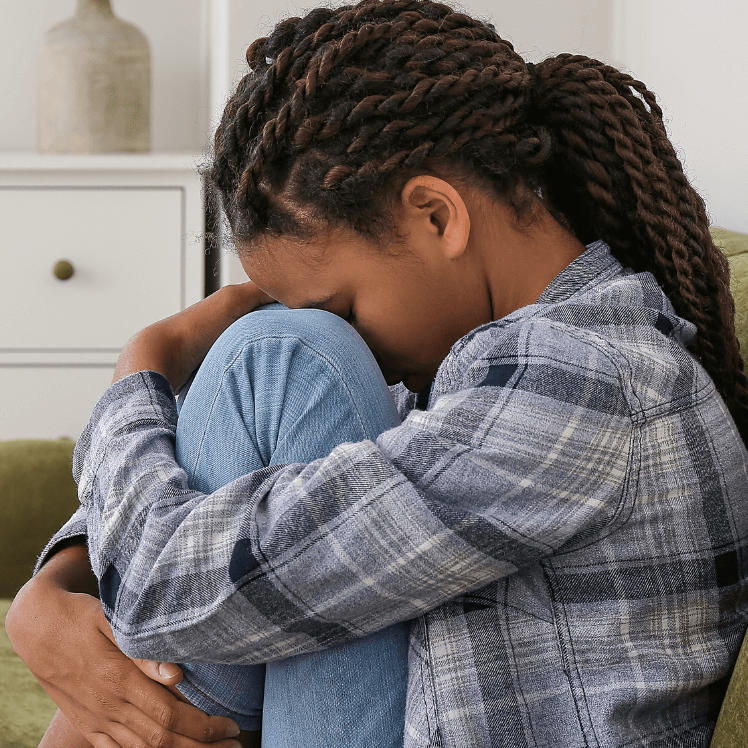Cognitive Behavioral Therapy (CBT) for Teen Mental Health in Dallas, Texas
The teen years are typically intense for the adolescent and those parenting teenagers. Sometimes you need a little help to overcome seemingly overwhelming teenage challenges. BasePoint Academy can help set your teenager on a path to better mental health teaching them lifelong coping skills. Call us today at (972) 357-1749 and discover your family’s path to better mental health with cognitive behavioral therapy for teens.
Cognitive Behavioral Therapy for Young Adults
Are you a teenager grappling with intense emotions or intrusive thoughts? Or perhaps you’re a parent concerned about your adolescent’s ability to deal with life’s challenges? At BasePoint Academy, we’re committed to guiding young individuals from their current struggles towards a more positive future using evidence-based methods. Our Cognitive Behavioral Therapy (CBT) for teens in Dallas is designed to offer practical tools to manage the present and engage in purposeful actions.
Our Texas-based program, serving Arlington, Forney, and McKinney, offers comprehensive mental health care tailored to teenagers. We believe in empowering adolescents to incorporate their treatment seamlessly into their everyday lives. As part of our commitment, we provide free evidence-based mental health assessments for teenagers. To ensure our high-quality CBT therapy near Dallas, TX, is accessible to all, we proudly accept insurance coverage for our programs. Whether you’re looking for CBT for adolescents, teen CBT, or cognitive behavioral therapy for young adults, BasePoint Academy stands ready to support your journey towards better mental health.
What is Dallas Known for?
Dallas began as a frontier town, founded in 1841 as a training post for settlers who were heading west. Today it’s a thriving business hub and home to a number of Fortune 500 companies. One of the reasons it’s so attractive is the tax policies, including no personal or corporate income tax.
Another factor is that it’s located in the middle of the country, which is ideal for businesses who want to work in multiple markets. Dallas is home to several world-class museums and theaters, including the Dallas Museum of Art which is one of the largest art museums in America housing over 25,000 works from different parts of the world. If you’re looking for more than the bustle of city life, consider the 3.5-mile Katy Trail that runs through the heart of Dallas and is perfect for those who love walking, jogging or cycling.


Statistics on Cognitive Behavioral Therapy in Texas
Each year approximately 20% of adults and 1 in 7 children and adolescents meet the criteria for a mental health condition. Yet, over 50% do not receive treatment and only 1 in 7 get minimal mental health care. Cognitive behavioral therapy (CBT) is used by a majority of psychologists because it has clear, common sense principles.
CBT also has research support, and international guidelines that recommend it is the first-line treatment for many mental health conditions. In one study, participants that received CBT with antidepressants for depression had a reduction in symptoms and improved quality of life when the depression had not responded to medication alone.
Studies on CBT have concluded the following:
- When used in schools, CBT is beneficial in treating generalized anxiety, stress, depression, and behavioral problems.
- Scientific evidence shows that CBT effectively manages ADHD, anxiety, and disruptive behavior disorders in teens and adolescents.
What is Cognitive Behavioral Therapy?
Cognitive behavioral therapy is a form of short-term talk therapy that approaches mental health conditions using behavioral modification techniques and problem-solving therapy which has proven to be effective in the treatment of several types of mental health conditions. Advances in CBT are made based on research and clinical practice, which ensures positive results.
The therapeutic intervention is based on several core principles, including that mental health conditions are based on learning patterns of unhelpful behavior and in part on unhelpful ways of thinking. Therapists believe that people who suffer from a variety of mental health conditions can learn different ways of coping which relieves their symptoms and allows them to become more effective in their own lives. If you’re searching for cognitive behavioral therapy for teenager near me or adolescent cognitive behavioral therapy near me, we’re here to help – call us today!

Cognitive Behavioral Therapy Admissions and Intake
Our complimentary assessment with a licensed clinician will provide you with a recommendation for the appropriate level of care for your teen struggling with mental health. We can also check your insurance coverage levels.
Call us today to schedule a complimentary same-day assessment at (972) 357-1749 or complete our inquiry form.
Cognitive Behavioral Therapy FOr Teens Admissions form
Contact BasePoint Academy Today
Contact us today to schedule a free confidential assessment for your teen with a licensed clinician.
You can also get in touch to talk with our mental health experts about treatment needs, care options and your insurance coverage levels.
Call: (972) 357-1749Check Your InsuranceCommon Disorders Treated with Cognitive Behavioral Therapy
Research supports the use of cognitive behavioral therapy with positive outcomes in a variety of mental health conditions. This is a partial list of those conditions that occur in teens and adolescents. However, this is not a full list of mental health conditions that respond to cognitive behavioral therapy. For more information, call BasePoint Academy at (972) 357-1749.
CBT Therapy for Insomnia in Youth
Adolescents who have insomnia find it difficult to fall asleep or to stay asleep. A lack of quality sleep can cause a variety of difficulties, including poor reaction skills, increased risk of driving or operating heavy machinery, poor decision making, and reduced math skills.
Cognitive behavioral therapy for insomnia is a first-line treatment before taking sleeping pills since sleeping pills are not the best long-term treatment. CBT helps teenagers discover the thoughts or behaviors that cause sleeping problems and make them worse.
CBT Therapy for Depression in Teens
Depression is a serious mental health condition. Without treatment, your adolescent may experience worsening symptoms and devastating consequences. Cognitive behavioral therapy techniques are effective in adolescents with depressive disorders. A CBT therapist can use a variety of different techniques to help identify unhealthy thought patterns that affect the way you think about yourself, your overall outlook on life, and mood.
CBT Therapy for Social Anxiety in Youth
At one time or another, everyone experiences anxiety. However, teenagers who have social anxiety routinely experience overwhelming feelings of fear and anxiousness when faced with a social situation. Together with a CBT therapist, your adolescent identifies unhealthy core beliefs that contribute to their mental health condition and then learns a variety of skills and strategies to overcome social anxiety.
CBT Therapy for OCD In Young Adults
Obsessive-compulsive disorder (OCD) was once called manic depression. Adolescents with OCD experience frequent intrusive and unwanted thoughts that lead to compulsive behaviors. Cbt therapy for teens can help your adolescent identify the thoughts and behaviors that create the problem and offer specialized treatment options designed to break the mental associations that occur with OCD.
CBT Therapy for ADHD In Teenagers
Attention deficit hyperactivity disorder (ADHD) is a neurodevelopmental condition that typically presents in childhood but continues to affect the individual through adulthood. Cognitive behavioral therapy for adhd is supported by clinical results and research that shows it improves self-esteem, productivity, and happiness.
This in turn affects your adolescents’ relationship with friends and family. CBT also addresses demoralizing thoughts and beliefs that keep a child with ADHD from achieving their fullest potential.
CBT Therapy for PTSD In Adolescents
Post-traumatic stress disorder (PTSD) is a mental health condition that may be triggered when your adolescent experiences or witnesses a traumatic event. Cognitive behavioral therapy techniques help your adolescent focus on the relationship between their thoughts, emotions, and behaviors, which lead to difficulty in functioning in everyday life.
CBT can encourage your adolescent to reevaluate thinking patterns and assumptions that trauma-focused cognitive behavioral therapy can help your teenager address situations that are associated with the original trauma.
CBT Therapy for Bipolar Disorder in Teens
Bipolar disorder triggers extreme mood swings in your adolescent, from the extremely high to the very low. Using cognitive-behavioral coaching and other cognitive behavioral therapy strategies, an experienced adolescent CBT therapist uses strategies alongside medication to help your adolescent recognize and understand the condition, improve medication compliance, and help them identify healthy ways of dealing with the condition.

Do Mental Health Centers Offer Cognitive Behavioral Therapy for Teens?
Yes, nearly all mental health treatment centers offer cognitive behavioral therapy for their patients. Some treatment centers offer mental health options for adults and teens. However, it is crucial to remember that adolescents are not small adults. They are growing through a unique time period in their developments during which hormones are imbalanced and their brain is growing. Our trained professionals at BasePoint Academy are here to help you and your loved ones. If you are looking for “cognitive behavior therapy for teens near me”, reach out to us today at (972) 357-1749.
What are some Cognitive Behavioral Therapy techniques for Adolescents?
The term cognitive behavioral therapy encompasses several techniques that are used to help adolescents with mental health conditions. The cognitive behavioral interventions that a CBT therapist chooses is based on your adolescence mental health condition and the therapist’s assessment of the treatment options will be the most effective.
The following is a list of potential techniques, but it is not a full list of options. For more information about cognitive behavioral therapy and how it might help your teenager, call BasePoint Academy at (972) 357-1749
Cognitive Restructuring CBT
The therapeutic technique called cognitive restructuring CBT helps your teenager learn about thoughts that are not working. The therapeutic technique is not about flipping things around to the extreme positive, but rather concerned with developing a viewpoint that considers the positive and negative perspectives and helps to restructure dysfunctional thoughts.
Behavioral Activation CBT
Behavioral activation is a specific skill that is used alone or in combination with other cognitive behavioral therapy strategies. It is effective as a way out of a vicious cycle that is often associated with a depressed mood.
People who get depressed typically are less active and so have fewer opportunities to connect with others. Behavioral activation offers a way out of this trap using a proactive strategy to break the cycle.
Exposure therapy CBT
Exposure therapy techniques is a type of psychological treatment that helps people confront the things they fear. While avoidance may help reduce the feeling of fear, in the long run, the fear rises and increases the risk of depression and anxiety disorders. There are several variations on exposure therapy, which your cognitive behavioral therapist will choose based on your adolescent’s needs.
Thought Records CBT
The foundation of CBT is that what your adolescent thinks affects what they do and how they feel. By beginning with how they think about themselves and their lives, your adolescent can change how they feel and what they do. Thought records help your teenager practice identifying some of the automatic negative thoughts and to practice thinking in a more balanced way.
Problem-Solving Cognitive Behavioral Therapy
Problem-solving is a foundational skill in cognitive behavioral intervention that helps your teen develop strategies and techniques to cope with stressful life experiences. Problem-solving skills may be necessary to help them overcome their current mental health conditions, but it is also a skill that will serve them well throughout their life.
Role Playing Cognitive Behavioral Therapy
During role play, your adolescent collaborates with their cognitive behavioral therapist to identify and address thought patterns and behaviors that are out the root of their mental health condition. The process requires active participation and is an effective and evidence-based technique that occurs in a safe and controlled environment where adolescents can learn and practice new skills.
Trauma-focused Cognitive Behavioral Therapy
Trauma-focused cognitive behavioral therapy is an effective and holistic treatment for adolescents and their caregivers to help reduce the symptoms of post-traumatic stress disorder (PTSD) and other signs of emotional trauma. The treatment is sensitive to both the unique life stage of adolescence and those who have experienced a traumatic event.
BasePoint Academy Accepts health Insurance
We accept most major health insurance providers in Texas and can check your treatment coverage levels on your behalf
Teenage Cognitive Behavioral Therapy Center Near me in Dallas, Texas
Base Point Academy has several CBT treatment facilities for teens in the Dallas-Fort Worth area, including in Arlington, Forney, and McKinney, Texas. Each of these luxury treatment facilities offers the same level of care from licensed mental health professionals whose focus is providing teenagers with the tools and resources they need to heal and support sustainable recovery from depression and other mental health conditions.
- Arlington, Texas: 3900 Arlington Highlands Blvd, Suite 237, Arlington, TX 76018
- Forney, Texas: 713 W Broad St, Suite 200, Forney, TX 75126
- Frisco, Texas: 8275 Judges Way, Suite 100I, Frisco, TX 75036
- McKinney, Texas: 4733 Medical Center Drive, McKinney, TX 75069

Treatment Center in Arlington, Texas
Arlington, Texas, is spread over 100 square miles and has a population of more than 392,000. The city is located midway between Dallas and Fort Worth and was named after General Robert E Lee’s hometown in Virginia. The city boasts over 4,000 acres of parkland, seven recreation centers, 50 tennis courts, and eight swimming pools. Arlington is home to the University of Texas at Arlington, the NFL Dallas Cowboys and the MLB Texas Rangers.
- BasePoint Academy – Arlington, Texas: 3900 Arlington Highlands Blvd, Suite 237, Arlington, TX 76018, United States
Treatment Center in Forney, Texas
Forney, Texas, is known for down to earth people, nationally recognized schools, and attractive housing prices. The city is located 30 minutes east of Dallas, and while it might seem like just another city around the Metroplex area, to the people who live there, it’s Forney country. Forney is located in Kaufman County and has a population of over 22,000, which is a significant growth in population since 1980 when the city’s population was 2,483. Many call Forney the city’s most affordable suburb, which continues to have a well-preserved historic downtown area that dates back to the late 19th and early 20th centuries.
- BasePoint Academy – Forney, Texas: 713 W Broad St, Suite 200, Forney, TX 75126, United States
Treatment Center in McKinney, Texas
McKinney, Texas, has a deep community spirit and the city holds strong ties to its history while continuing to enjoy rapid economic development. McKinney is 30 miles north of downtown Dallas and remains a picturesque city with a small-town feel, which belies the reality that McKinney is one of the fastest growing cities in America. When you’re looking for information about natural science and wildlife, take a stroll through Heard Natural Science Museum and Wildlife Sanctuary that’s set on 289 acres and home to more than 220 birds, amphibians, and mammals.
- BasePoint Academy – McKinney, Texas: 4733 Medical Center Drive, McKinney, TX 75069, United States

Does Insurance Cover Cognitive Behavioral Therapy for Teens in Texas?
Yes, most major health insurance policies cover CBT for teens in Texas. The Affordable Care Act in 2010 mandates that all insurance policies offer mental health and substance use disorder coverage. However, not all policies offer the same benefits. Some limit the type of therapy, the number of sessions, or the number of times that a beneficiary can receive treatment.
Contact BasePoint Academy Today
Contact us today to schedule a free confidential assessment for your teen with a licensed clinician.
You can also get in touch to talk with our mental health experts about treatment needs, care options and your insurance coverage levels.
Call: (972) 357-1749Check Your InsuranceUnderstanding When to Enroll Your Teen Cognitive Behavioral Therapy
There are times in most teenagers’ lives when they can benefit from additional support and therapy. The following are several examples, but it’s important to remember that this is not a full list. If you have questions about whether your teen could benefit from CBT treatment at BasePoint Academy, give us a call at (972) 357-1749 to speak with one of our admission counselors and learn more about cognitive behavioral therapy for teens.
School Impacting Teen Mental Health
Middle school and high school children and teenagers are in a highly structured environment, which for some may help offset the uncertainty of society and for others may cause even more stress. How school life affects your teenager’s mental health depends on the school your teen attends, their friends, and themselves.
If you have questions about whether school is negatively influencing your child’s mental health, call BasePoint Academy today.
Family Issues Affecting Youth Well-Being
With any disruption in the family, your teenager can experience changes in their mental health. Family disruptions can include difficulty parenting teenagers, or life situations such as divorce, remarriage, blended families, or older siblings leaving home or moving in. Any change in the family unit can disrupt relationships and your adolescent may benefit from additional support and therapy.
Social Circle Impacting Adolescent Behavior
Your teenager’s social circle are their friends who influence the way they think and feel. Your teenager has a wider range of people in their social circle than previous generations ever did. That is related to the explosion of digital technology and social media platforms. Your teenager can have friends next door, across the country, or around the world.
Additionally, they’re also influenced by streaming video services and other social media platforms where teenagers share ideas that are not always healthy. If you believe your adolescent’s behavior is negatively influenced by their social circle, there are steps you can take to help them identify the negative influences and understand the steps needed to protect their mental health. Call BasePoint Academy today at (972) 357-1749 or contact us online to speak with one of our admissions specialists.
How Long Is the Cognitive Behavioral Therapy Treatment Process for Teens?
How long cognitive behavioral therapy treatment takes is dependent on your teenager’s customized plan and how they respond to the plan. After the license mental health professionals develop a customized plan, you and your teenager are informed of the intensity of therapy and the anticipated length of treatment. Licensed counselors will routinely evaluate your teenager’s progress and adjust the treatment plan if necessary to ensure the best outcomes from their cognitive behavioral therapy for teens.


DBT Therapy vs CBT Therapy
Behavioral therapy is an evidence-based field of therapeutic intervention that addresses human behavior. It’s a broad term that encompasses dialectical behavioral therapy (DBT) and cognitive behavioral therapy (CBT). You may have questions about DBT therapy vs CBT therapy. The difference lies in how the therapist addresses the issues with your teenager.
Both have proven to be effective in many mental health concerns. While using DBT strategies, a behavioral therapist helps your teenager to understand and cope with what is happening in their life in the immediate period. This gives your teen the tools they need to live within realistic parameters and develop coping skills. cognitive behavioral therapy addresses change by helping teenagers connect how they think with how they feel and how they act. As teenagers identify patterns, they are given tools to help break those patterns and develop more positive results. If you’re exploring options like DBT or cognitive behavioral therapy for teens, BasePoint Academy can help guide your family toward the right fit.
How Much Does CBT Therapy for Teens Cost in Dallas, Texas?
How much in-person or virtual cognitive behavioral therapy costs in Dallas, Texas, is highly influenced by two factors. The first factor is your teenager’s customized treatment plan. For example, if your adolescent is admitted into the partial hospitalization program, that will be more expensive than the intensive outpatient program. The intensity of therapy within an intensive outpatient program can also vary.
The second factor is your insurance policy benefits, deductible, copay, and limits. The admission specialist at BasePoint Academy can help identify and estimate your out-of-pocket expenses based on your adolescent’s preliminary customized treatment plan. The estimation will include your deductible, how much of your deductible you’ve met for the year, if your insurance policy has a copay, and whether your insurance policy covers all of the types of therapy being recommended for your teen. Call BasePoint Academy today for more information about cognitive behavioral therapy for teens and how it can help your teenager and your family.

BasePoint Academy: Your CBT Treatment Partner in Dallas, Texas
At BasePoint Academy, we understand the unique challenges faced by teenagers in today’s world. Our Cognitive Behavioral Therapy (CBT) treatment facilities, located in Texas and surrounding Dallas, provide a sanctuary for teenage boys and girls. With our centers in Arlington, Forney, and McKinney, we are committed to offering a variety of evidence-based therapies, including CBT and Dialectical Behavior Therapy, to meet the diverse needs of our young clients.
As part of our pledge to holistic care, BasePoint Academy offers free, evidence-based mental health assessments as an integral part of the CBT therapy treatment admission process. These assessments are available to adolescent boys and girls based in Texas and surrounding Dallas across all our facilities. By understanding each individual’s unique needs, we can tailor our approach to provide the most effective care. We also offer a variety of other therapeutic options, each designed to foster growth, resilience, and positive change. We encourage you to explore our range of therapies by clicking the links below. Whether you’re seeking “CBT therapy for teens near me,” “CBT therapists in Dallas,” or a “CBT intensive outpatient program,” BasePoint Academy is here to support your journey towards better mental health.
Helpful Articles Related to Teen Mental Health Therapy
Statistics on Cognitive Behavioral Therapy in Texas
- Every year, one in five adults suffers from a mental illness and globally one in seven children in adolescents meets the criteria for a mental disorder.
- Despite a great need, over 50% of people who meet the criteria for a psychiatric diagnosis do not receive treatment and only one in seven receive minimally adequate care.
- Cognitive behavioral therapy is therapeutic intervention used by the majority of practicing psychologists, in part because it clearly uses common sense and clear principles that demonstrate improvement in a variety of mental health disorders, including anger, anxiety, chronic pain, and marital problems.
- Popularity of cognitive behavioral therapy also has clear research support, and international guidelines that make it a first-line treatment for many disorders.
- In one study, cognitive behavioral therapy in addition to antidepressants effectively reduced symptoms and improved quality of life in patients whose Depression had not responded to medication.
- A meta-analysis of 106 studies evaluating cognitive behavioral therapy for a variety of mental health conditions demonstrated the strongest support for anxiety disorders, anger, stress, bulimia, and somatoform disorders. When compared against other treatments or control conditions, cognitive behavioral therapy had a higher response rate in the majority of studies.
Find Out More About CBT for Teens Today
If your teen has been exhibiting mental health issues, substance abuse, or other behavioral health concerns, it’s time to explore effective and focused treatment options. The team of clinicians, counselors, and therapists at BasePoint Academy provide an integrative approach to teen treatment that supports lifelong success. Call today to schedule a complimentary assessment.
Contact BasePoint Academy Today
Contact us today to schedule a free confidential assessment for your teen with a licensed clinician.
You can also get in touch to talk with our mental health experts about treatment needs, care options and your insurance coverage levels.
Call: (972) 357-1749Check Your InsuranceFrequently Asked Questions About CBT For Teens
After evaluating each patient, our clinicians will decide on the best mix of CBT techniques for their unique situation. This plan may be any combination of the following:
- Modeling: A form of role play, the therapist will typically act out the desired response to a situation and then ask the patient to do the same.
- Trauma-Focused CBT: For teens dealing with PTSD, this method focuses on the trauma they experienced and their behavioral and cognitive responses to it.
- Restructuring: With this method, the therapist shows teens how to take their typical negative responses and flip them to a positive way of seeing the same situation.
- Exposure: The therapist will slowly expose teens to triggers in a safe environment to see how they trigger their responses.
Every patient’s journey with therapy is unique, so putting a specific timeframe to treatment isn’t beneficial to anyone. However, teens can expect improvement in their coping skills after their initial sessions, which will only improve as they continue working with our team.
Working with adolescents requires a unique focus and approach by therapists, which isn’t something every professional possesses. For CBT to be effective, the patient must trust their therapist and allow themselves to be vulnerable and open.
If you’re a teen struggling to connect with your therapist, be honest about this and get help finding someone you’re more comfortable with. This special relationship is crucial to the success of any therapy, but, in particular, that of teen and adolescent therapy. Our clinical staff is committed to working with this particular age group and has gone through age-specific training for them.
The framework for CBT can be boiled down to three primary principles, or the three “Cs.”
Catch is the first principle, referencing catching negative feelings before they get out of hand and determining what thought has led to them. Check is the second, referring to taking stock and weighing whether or not those thoughts are true, accurate, or helpful. Change is the final component, encouraging the teen to flip the script on thoughts and feelings that they have internally deemed unhealthy or unhelpful.
These are some of the practical coping skills our teens learn to navigate challenging mental health and substance use concerns.






